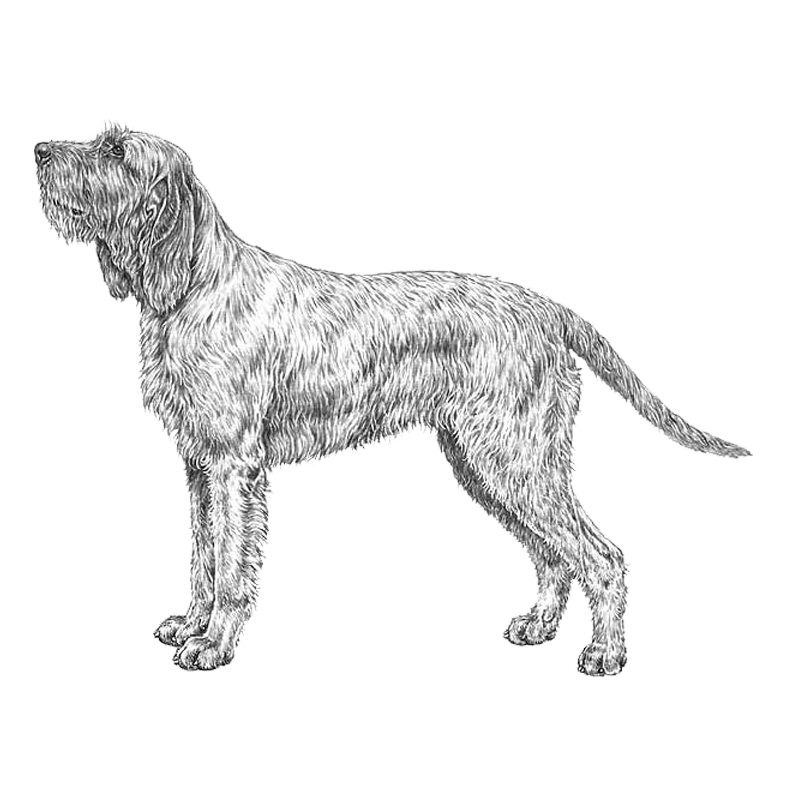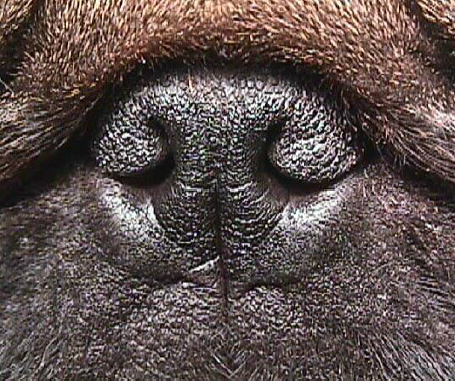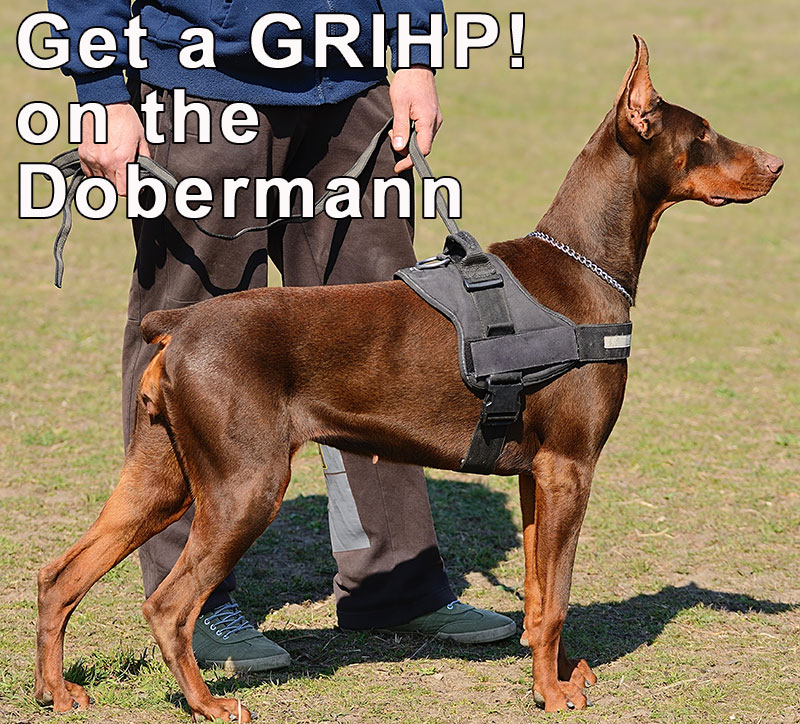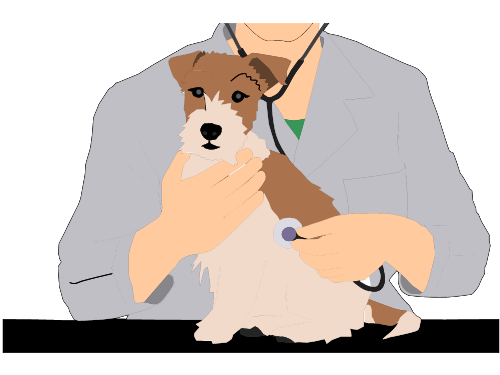-
Spinone Italiano
-
AMR - Research - updates
Marco-Fuertes A, Marin C, Lorenzo-Rebenaque L, Vega S, Montoro-Dasi L. Antimicrobial Resistance in Companion Animals: A New Challenge for the One Health Approach in the European Union. Veterinary Sciences. 2022; 9(5):208. https://doi.org/10.3390/vetsci9050208 This research includes data collected from multiple EU countries on use of Antibiotics in companion animals - cats/dogs along with other species (cows, sheep, chickens...) Alternatives to Antibiotic Use are covered. Conclusions In conclusion, dogs and cats are considered an important potential source of AMR, posing a risk to public health. However, there are no harmonised control and monitoring programmes established in the EU, highlighting the need to create a joint plan to combat the evolution of AMR in companion animals, encompassing this concern under the One Health concept. For this reason, the EARS-Vet network (2023 report) is currently being developed, with the aim of establishing the bacterial species to be monitored, the complete antibiotic panels for these bacteria and the type of procedure to be followed to analyse collected samples. Moreover, alternatives to the use of antibiotics in veterinary clinic practice are being developed, with the aim of modulating the intestinal microbiota and prevent the onset of diseases (probiotics, prebiotics, symbiotics or postbiotics), also considering treatments such as faecal transplantation and bacteriophages.
-
Get a GRIHP! on English Setters
This article on English Setters is part of a series to highlight the Big Picture of health, welfare and breeding and to help develop Globally Relevant Integrated Health Profiles (GRIHPs) for many breeds. See IPFD's Get a GRIHP! on Breed Health Initiative. There are many others doing great work to advance health, well-being, and welfare in this wonderful breed. We reference and link to terrific work, developments, reports, and research from the UK, USA, Sweden, Finland, and more below. Thanks to all of those working on behalf of English Setters. This is a 'living document' - so if anyone has more material to share or point us to - please let us know!
-
Flat Coated Retriever
A link to the Database has been added. Thank you for sharing!
-
BOAS Lecture with Jane Ladlow - 2019 -- NORWEGIAN SCHOOL OF VETERINARY SCIENCE
See NKK for more information on this seminar. https://www.nkk.no/forelesninger-og-foredrag/boas-seminar-med-dr-jane-ladlow-article184386-1439.html A wealth of information is available on the BOAS Pages @ NKK.
-
Dobermann Dog Breed - Genetic Diversity and Inherited Disease Risk - Application of Citizen Science
Comment: Grassroots efforts by people who know and care for breeds can lead to better understanding of issues affecting breeds of dogs - this study taps into internationally based "Citizen Science" project collections along with Kennel Club resources. It is remarkable that in today's sometimes divisive society, where different views of how to best manage dog health and welfare exist, that Citizen Science project data collected can be analyzed by scientific researchers to offer potential ideas for moving forward to improve dog's lives. See: Wade, C.M., Nuttall, R. & Liu, S. Comprehensive analysis of geographic and breed-purpose influences on genetic diversity and inherited disease risk in the Doberman dog breed. Canine Med Genet 10, 7 (2023). https://doi.org/10.1186/s40575-023-00130-3 Note: 3,226 dogs are included in this study. Background "Publicly available phenotype data and genotyping array data from two citizen science projects: “Doberman Health Surveys” and “The Doberman Diversity Project” were analyzed to explore relative homozygosity, diversity, and disorder risk according to geographical locale and breeding purpose in the Doberman." Excerpt... "By genotyping, the world Doberman population exists as four major cohorts (European exhibition-bred, Americas exhibition-bred, European work, Americas pet/informal)." Check out this study to... see life expectancy data differentiated by cohort (1,738 reported ages at death) disease incidence including dilated cardiomyopathy, congestive heart failure, osteosarcoma, cervical spondylomyelopathy (wobblers), lymphoma, gastric dilation volvulus (bloat), spondylosis and haemangiosarcoma. Important to note... related to diversity "...the (Dobermann) breed has had a purpose divided between the original breed working function and as a family companion. As is common in working dog breeds, division of purpose has resulted in differences in breeding objectives between breeders producing animals fit for each purpose." The figures and tables in this paper are revealing. Fig. 1. Survival curves for locale-purpose cohorts phenotyped Table 1 Percentage of deaths attributable to leading causes normalised for regional representation. Grayed text locale-purpose cohorts are not explicitly identifiable in genotyped sample The leading causes of death according to dog age in years at the time of death across all locales are described in Fig. 2. Availability of data and materials for this study Electronic information relating to Doberman lifespan and cause of death are available from: https://dobehealth.org/results/index.php Access to genotyping data is provided on request from the Doberman Diversity Project: https://dobermandiversityproject.org/ RELATED CONTENT - DogWellNet Fine tuning breeding choices to address breed predispositions to develop disease based on evidence is the goal of responsible breeders. Breed and Public Education are key to improving lives of dogs. See the POSTER from the Doberman Diversity Project... which was displayed at the 4th International Dog Health Workshop. The poster provides an overview of results of genetic testing done by Embark through its Doberman Diversity Project panel test. Genetic disease predisposition and diversity information is available. Also see our article, Get a GRIHP! on the Dobermann Dobermann - DWN's Pedigree Dogs DB page
-
French Bulldog Club of America Health Seminar 2018
-
Get a GRIHP! on the Shih Tzu
This article on Shih Tzus is part of a series to highlight the Big Picture of health, welfare and breeding and to help develop Globally Relevant Integrated Health Profiles (GRIHPs) for many breeds. See IPFD's Get a GRIHP! on Breed Health Initiative. There are many others doing great work to advance health, well-being, and welfare in this wonderful breed. We reference and link to terrific work, developments, reports, and research from the UK, USA, Sweden, Finland, and more below. Thanks to all of those working on behalf of Shih Tzus. This is a 'living document' - so if anyone has more material to share or point us to - please let us know!
-
IPFD's Get a GRIHP! on Breed Health Initiative
Thank you, we will add the breed to our list. If you have any information to share with us, please do.
- 7 comments
-
- get a grihp
- grihp
- welsh corgi (cardigan)
- welsh corgi (pembroke)
-
+21 more
Tagged with:
- get a grihp
- grihp
- welsh corgi (cardigan)
- welsh corgi (pembroke)
- dachshund
- french bulldog
- australian shepherd
- saluki
- golden retriever
- finnish spitz
- rhodesian ridgeback
- whippet
- belgian shepherd dog
- english bulldog
- soft coated wheaten terrier
- dalmatian
- border terrier
- staffordshire bull terrier
- siberian husky
- doberman pinscher
- dobermann
- shih tzu
- english setter
- beagle
- chihuahuas
-
Mapping of initiatives to prevent inherited diseases and exaggerated phenotypes in dogs
Bruun, C. S., Fredholm, M., Proschowsky, H. F., & Sandøe, P. (2023). Mapping of initiatives to prevent inherited diseases and exaggerated phenotypes in dogs. Department of Veterinary and Animal Sciences, University of Copenhagen. PDF Link: https://static-curis.ku.dk/portal/files/333480261/Rapport_om_avl_af_racehunde_Jan_23.pdf (Internal: Rapport_om_avl_af_racehunde_Jan_23.pdf) Excerpt... "Aim The aim of this report is to describe initiatives – and when possible also the effects of these initiatives - to prevent inherited diseases and extreme phenotypes in dogs: research-based initiatives, initiatives taken by the breeding organizations, initiatives to inform and influence dog buyers, and legislative initiatives..." A concise Summary of the research is available. Initiatives exist at many levels to address appropriate evidence-based management of dogs - acknowledgment of, understanding and perspectives on breed-specific inherited disease in dogs is needed in order for breeders, judges, buyers, owners and vets to realistically act consciously within the bounds of their unique roles in the larger realm of keeping and seeing to dog's best interests and welfare. IPFD's longtime collaborator, Ian Seath, recently posted a Best of Health article - Dog Health Improvement – what’s working? – my “Best of Health” article for April 2023 | Sunsong.co.uk (wordpress.com). Ian's article offers comments on the Mapping of initiatives to prevent inherited diseases and exaggerated phenotypes in dogs research paper. Ian's perspective and observations, gained as a dog breeder and a UK club-based health manager, a Royal Kennel Club Board member, lecturer and breeding strategy expert, have lead him to conclude human behavioral change and perhaps creating a roadmap for various stakeholders are important considerations to making progress. We encourage reading of the Summary, Ian's article and the full paper. From... Mapping of initiatives to prevent inherited diseases and exaggerated phenotypes in dogs "Focus and methods Following a brief introduction to the historical background of the problems that we are still seeing in some breeds, in this report we describe and examine the effect of the following types of initiative designed to curb the negative consequences of dog breeding: research initiatives, initiatives within the dog breeding community, initiatives to inform and influence the prospective dog owners and legislative initiatives. We cover a number of western countries. This report is based on legal documents; documents from Fédération Cynologique Internationale (FCI), and also from the Danish and other national kennel clubs, Animal Welfare organizations and other relevant stakeholders links to which are typically found on the organizations’ webpages; and the scientific literature. Moreover, interviews were also conducted with stakeholders in Norway and the Netherlands."
-
IPFD Alumni
IPFD's Alumni The International Partnership for Dogs (IPFD) was founded on August 28, 2014. We would like to acknowledge the many knowledgeable and dedicated people who have contributed their time and efforts to support IPFD's Mission and Vision. The Mission of the International Partnership for Dogs (IPFD) is to facilitate collaboration and sharing of resources to enhance the health, well-being, and welfare of pedigree dogs and all dogs worldwide. Our Vision is an enduring global collaboration enhancing dog health, well-being, and welfare, and human-dog interactions. Meet our Alumni... the IPFD's Officers, Board of Directors and Consultants - Alumni - 2014 - 2022 - IPFD Alumni thru 2022-v2.docx
-
Get a GRIHP! on Breed Health
-
- australian shepherd
- welsh corgi (cardigan)
- welsh corgi (pembroke)
- black russian terrier
-
+19 more
Tagged with:
- australian shepherd
- welsh corgi (cardigan)
- welsh corgi (pembroke)
- black russian terrier
- bernese mountain dog
- pug
- french bulldog
- saluki
- doberman pinscher
- border terrier
- belgian shepherd dog
- tervuren
- dachshund
- dalmatian
- english bulldog
- finnish spitz
- golden retriever
- soft coated wheaten terrier
- rhodesian ridgeback
- rottweiler
- siberian husky
- staffordshire bull terrier
- whippet
-
Get a GRIHP! on the Dobermann
This article on the Dobermann breed is part of a series to highlight the Big Picture of health, welfare and breeding and to help develop Globally Relevant Integrated Health Profiles (GRIHPs) for many breeds. See IPFD's Get a GRIHP! on Breed Health Initiative There are many others doing great work to advance health, well-being, and welfare in this wonderful breed. We reference and link to terrific work, developments, reports, and research from the UK, USA, Sweden, Finland, and more below. Thanks to all of those working on behalf of Dobermanns! This is a 'living document' - so if anyone has more material to share or point us to - please let us know!
-
Collaboration & Partnership
The International Partnership for Dogs guides a global, multi-stakeholder effort to address issues affecting dog health, well-being, and welfare. This article highlights some of the International Partnership for Dogs' work and projects to bring together stakeholders.
-
Resources for Veterinarians
This article provides a list of DogWellNet Resources that may be of particular interest to Veterinarians. This is not a comprehensive listing - it is a starting point for finding relevant resources. Please visit the various areas of the site using the navigation bar and/or the Search function.







